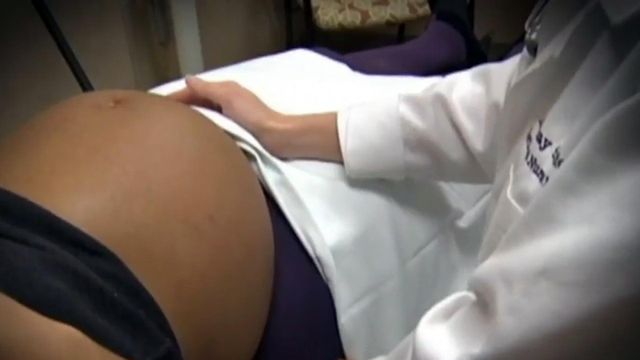RALEIGH, N.C. — The coronavirus has disproportionately affected communities of color, and state health experts said Monday that that extends even to pregnancy and newborns.
Sarah Verbiest, executive director of the Center for Maternal & Infant Health in the UNC School of Medicine, told a legislative committee looking at child health in North Carolina that Black and Latina women aren't just more likely to become infected with the virus, they’re also more likely to suffer negative effects from the pandemic.
Those effects include pre-natal care, delivery and newborn care.
When the outbreak began, a lot of services for pregnant women shifted from in person visits to telehealth. But women of color are less likely to have access to broadband to be able to use telehealth, Verbiest said.
"We’ve heard stories of moms driving to a McDonald's in order to get a prenatal visit," she said.
Hospitals have had differing requirements for births during the pandemic, and women of color and their infants were more likely to face stricter rules during delivery, she said.
"We found that some of these policies really varied by facility and across the country," she said. "We also saw racial disparities in terms of who was separated and who was allowed to come in for support."
After birth, Verbiest said, the isolation caused by the pandemic and the disconnection from older family members has been hard on all new moms. But families of color are more likely to face other stressors from the pandemic as well, like loss of wages.
"The financial concerns, the overall uncertainty, loss of health care coverage with loss of employment, have also added to that burden of anxiety for new families," she said.
Health officials are no longer recommending that newborns be separated from mothers who have COVID-19. They say the data so far seems to show that the risk of transmission is fairly low.
State Department of Health and Human Services officials also said pregnant women don't appear to be at a higher risk of death from the virus, although they’re slightly more likely to be hospitalized with it.





